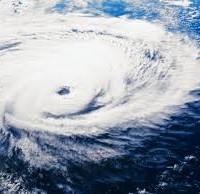My Indianapolis Star Article on Saturday
 Last week I was asked to be one of three “clergy and religious experts in the area” to be contributors for an article addressing the post-Sandy issue of “How does your faith or ethical perspective inform your response to natural disasters?”
Last week I was asked to be one of three “clergy and religious experts in the area” to be contributors for an article addressing the post-Sandy issue of “How does your faith or ethical perspective inform your response to natural disasters?”
This half-page article was published in this Saturday’s “Faith+Values” section of The Indianapolis Star and titled
“We see God’s role in disasters differently”
Here’s my contribution:
John Noe, president of the Prophecy Reformation Institute and author of “The Greater Jesus: His glorious unveiling”:
Distancing God from any responsibility for natural disasters has become fashionable today. But is this detachment simply an expression of wishful thinking, scriptural ignorance, or painful avoidance?
The Bible documents many instances of God causing natural disasters. Here are a few:
Who produced the great flood in Noah’s time that killed the vast majority of human beings (Gen. 7-8)?
Whose anger “shut the heavens so that it will not rain and the ground will yield no produce” (Deut. 11:17)?
Who opened up the earth and swallowed Korah’s men along “with their households and all their possessions” (Num. 16:30-34)?
Who answered Elijah’s two prayers and caused no rain for 3-1/2 years before “the heavens gave rain, and the earth produced its crops” (Jas. 5:17-18).
Who directs the “four angels standing at the four corners of the earth, holding back the four winds of the earth . . . who had been given power to harm the land and the sea” (Rev. 7:1-2)? Some believe these are the earth’s four jet streams that control the weather.
Lastly, God told Isaiah that “I bring prosperity and create evil/disaster/calamity” (Isa. 45:7). The Hebrew word variously translated as “evil, disaster, or calamity” is “ra.” It comes from the Hebrew verb “raa” meaning “to spoil.”
So when God never, sometimes, or always causes natural phenomena, is it good or bad? For me, never is not an option since God’s Word proclaims that He does not change (Mal. 3:6). But between the latter two possibilities, I simply don’t know which is right. And I don’t know anyone who truly does. For me, this would seem to be the irony of ironies.
Why do we often term natural disasters “acts of God” while taking for granted and rarely giving Him credit for years, decades, or even centuries of pleasant, peaceful, and beneficial weather?
There is one other fashionable idea as the reason for natural disasters nowadays. Let’s blame climate change, which is caused by humans, of course. But is it really?
***
What do you think?
